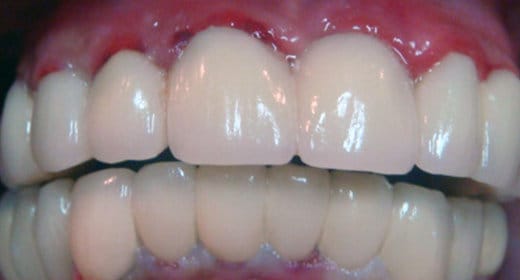If you want what’s best for yourself and your family when it comes to oral health, you’ll follow your dentist’s advice to the letter. If they recommend the best mouthwash for gum disease, it’s the mouthwash you should be using. If they tell you all about the best electric toothbrush for kids, it really should be the very next thing you buy. But at the same time, how and when can you determine whether there’s a problem that should be brought to your dentist’s attention?
Assuming your next check-up isn’t due for several months, what kinds of signs and symptoms is it worth bringing up with your dentist as early as possible?
Well, the simple answer is that anything you’d consider to be unusual represents something to speak to your dentist about. Of course, ‘unusual’ is a little too vague to work with as what seems odd to some might be perfectly normal for others. Nevertheless, given the way in which oral health is so intrinsically connected with overall physical health, it is of the utmost importance to bring your concerns out into the open as early as possible.
So with this in mind, what follows is a brief introduction to just a few common oral health symptoms that should be brought to the attention of your dentist at your earliest possible convenience:
Bad Breath
If like most people you brush your teeth intensively before visiting the dentist, chances are they may not pick up on the fact that you are troubled by bad breath. While it’s true to say that bad breath isn’t usually caused by anything sinister, it’s important to acknowledge the fact that it is indeed caused by something. It could be that the root cause of your bad breath is gum disease, it may be something to do with your diet, your oral hygiene practices may not be as great as you think they are or you could have an issue with digestion or acid reflux. In all such instances, it’s perfectly possible that the problem could be corrected relatively easily – just as long as you bring it to the attention of the professionals.
Swollen Gums
Every now and again, eating food that is too hot can result in swollen gums due to their delicate tissues having been burned. However, in instances where swollen gums appear with no apparent cause, are prolonged, occur frequently or are in any way severe, it is important that they be checked out by a dental professional as soon as it is convenient. The reason being that once again, swollen gums have the potential to be a sign of gum disease. Gum disease can be treated relatively easily and need not necessarily be a cause for panic, though if left untreated has the potential to lead to tooth loss. Speak to your dentist and they will most likely recommend a number of products to use at home, which over time will bring the problem under control.
Sour Taste in the Mouth
Another extremely common problem is that of a continuous or frequent sour taste in the mouth, that often leads to those affected assuming that they have bad breath. In reality, a sour taste in the mouth often turns out to be a symptom of acid reflux – a condition that results in excess stomach acid finding its way into the mouth. This may happen while you are awake, or perhaps even when you sleep – a condition known as ‘silent’ reflux. Given the properties of stomach acid, it has the potential to be extremely harmful to both your throat and your mouth in general, meaning it is something you should look to address as soon as possible. More often than not, all that’s needed is a simple orally-administered daily medication to bring it under control.
Bleeding Gums
Given the fact that spotting blood on a toothbrush is so common, it is often interpreted as both normal and of no cause for concern. In reality however, bleeding gums are absolutely not normal and should be interpreted as a cause for concern. The reason being that once again, bleeding gums are the number-one indicator of gum disease – usually in its earliest stages. Which in turn means that this is also the stage during which it is easiest to address and eliminate gum disease, before running the risk of the problem worsening or losing a tooth due to inaction.
Dry Mouth
Known in medical circles as xerostomia, dry mouth is one of the most common of all oral health conditions. And the older you get, the more likely it is that you will experience dry mouth. There are literally hundreds of different medications and health conditions that can cause chronic dry mouth. Most of the causes of dry mouth are relatively unserious, but there are also those that may require urgent treatment. As such, if dry mouth has become any kind of concern for you whatsoever, it makes sense to have it checked out just in case. Chances are it won’t be anything to worry about, but it’s always a good idea to find out for sure.
Loose Teeth
It’s highly unlikely that anyone detecting a loose tooth would be likely to ignore it and hope that the problem went away on its own. Nevertheless, it is crucially important that loose teeth be brought to the attention of dental professionals at the earliest possible stage, as the root cause may be something that is both progressive and can be stopped in its tracks with appropriate treatment. The simple fact of the matter is that the longer you leave one or more loose teeth unaddressed, the higher the likelihood you will lose them. In addition, if the problem is caused by any kind of gum or bone disease, you risk losing even more teeth if you do not have the problem looked at as soon as possible.
Mouth Sores
Last but not least, it’s important to know that one of the most common signs of mouth cancer is a red or white patch in the mouth or on the tongue that’s usually quite painful. In addition, there are also many different oral health conditions and diseases that initially present in the form of mouth sores. That being said however, the overwhelming majority of mouth sores are absolutely nothing to worry about and will eventually go away on their own. Nevertheless, it is extremely important for your own well-being and peace of mind to eliminate the doubt at the earliest possible juncture. If you suffer from prolonged or frequent mouth sores of any kind, make an appointment with your dentist and have yourself checked out.

